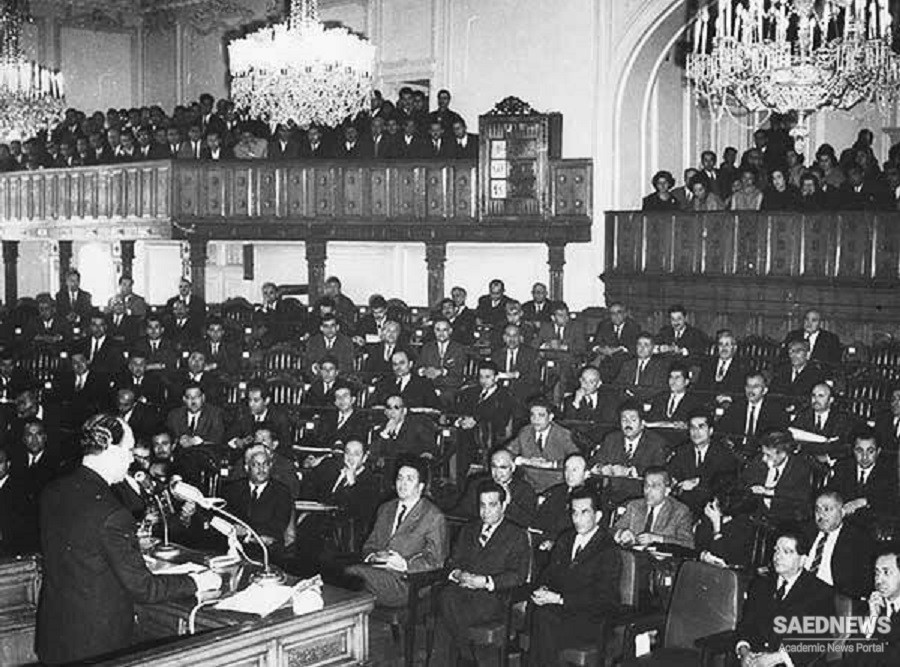Notables also dominated the four parliaments that sat in these thirteen years: the Thirteenth (1941–43), Fourteenth (1944–46), Fifteenth (1947–49), and Sixteenth Majles (1950–52). For example, of the 134 deputies in the Fourteenth Majles – the first elected after the abdication – 27 percent were large landlords, 16 percent were civil servants with substantial land, 11 percent were wealthy businessmen, and 6 percent were clerics with land.22 More than 62 percent had been born into landowning families. Professionals and civil servants without land numbered fewer than a handful. What is more, notables dominated Majles through parliamentary parties known as fraksiuns – the term was borrowed from the German Reichstag.
For example, the Fourteenth Majles was divided into four major fraksiuns. The Azadi (Freedom or Liberal) Fraksiun was led by: Muhammad Vali Mirza Farmanfarma, the family’s patriarch; by Abul-Qassem Amini, the grandson of the Amin al-Dowleh who had served as chief minister to both Nasser al-Din Shah and Muzaffar al-Din Shah – the Aminis were descendants of the famous Ashtiyani family; and by Sardar Fakher Hekmat of the Mushar al-Dowleh family that had struggled for generations with the Qavam al-Mulks and the Qashqayis for mastery of Fars. The Demokrat Fraksiun – also known as the Fraksiun-e ‘Eshayer (Tribal) – was led by: Samsam and As’ad Bakhtiyari; Sowlat Qashqayi, son of the late Sowlat al-Dowleh; and Abbas Qobadian (Amir Makhsus), chief of the Kalhur tribe in Kurdestan. Qobadian, like many Bakhtiyari and Qashqayi khans, had been incarcerated by Reza Shah.
The Ettehad-e Melli (National Union) Fraksiun was led by: Sayyed Muhammad Tabatabai and Sayyed Ahmad Behbehani – sons of the two mojtaheds who had led the early constitutional movement; and by Ezatollah Bayat, brother of the premier with the same name, both of whom were major landlords in Arak. The Mehan (Fatherland) Fraksiun was led by Hadi Taheri, Muhammad Namazi, and Hashem Malek-Madani – three wealthy businessmen who had represented Yazd, Shiraz, and Mallayer respectively during the previous twenty years. The Majles also contained a number of prominent independent (mostaqel) deputies: Mossadeq; Sayyed Ziya, the short lived premier of the 1921 coup; Timourtash, son of the murdered minister; and Rahman Khalatbari, heir to the famous Sepahdar.


 Mohammad Ali Shah's Collapsing Reign
Mohammad Ali Shah's Collapsing Reign














































